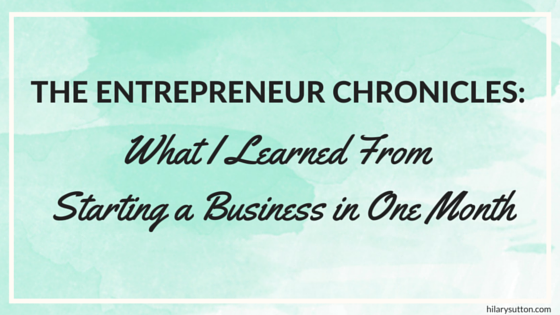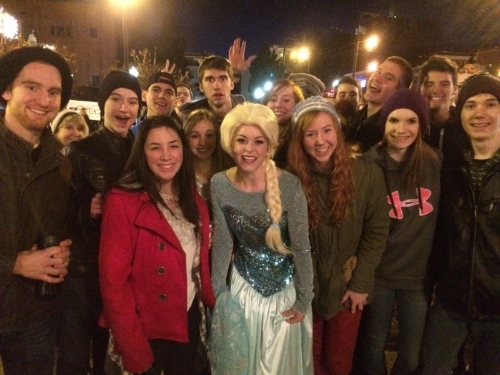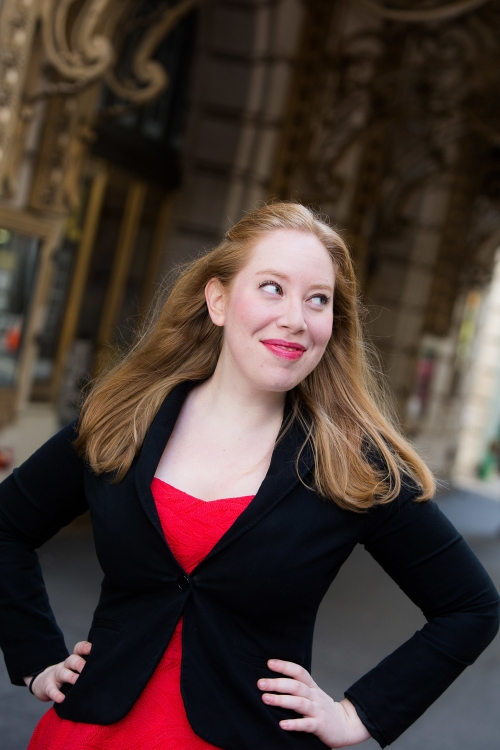JAT: I think you just always need to be yourself. People who know me well know that what you see online is really what you get in person. That’s not to say that 100% of what you’d get in person is posted on social media—but what IS posted, is genuine. What’s posted online is the 2% of my day that I choose to share with friends publicly, and also with thousands of strangers. With anyone, from my best friend to a celebrity to a stranger, I am also aware that what I’m seeing is only 2% of their day.
People who rock at social media seem very aware of this, to me. Laura Benanti keeps it completely real on social media, and is very personal, but you understand that you’re seeing 2% of her day, and she is choosing what she wants to share publicly. She’s not word vomiting her entire life on you, but when she does tell you what’s going on with her, it’s what is really going on with her. I think it’s amazing that we can all connect on social media, and I love being able to talk to theatre folks all over the globe through it—it’s an important aspect of life in 2015, and one that I’m grateful for and love using.
I think people who “promote” and “network” successfully aren’t thinking about it or approaching it that way, in those words. When I’m working on a show I love, I want to tell people about it, the same way I’d want to tell people if I just saw Oprah walking into Hamilton. When I’m making a new connection at a get-together, it’s because I really want to learn more about that person. Promoting for the sake of promoting or networking because you think you’re supposed to, is useless to everyone. But if you’re doing something you care about and think is great, and sharing that with the world, that’s something I want to read about or talk about.
HS: You somehow seem to flawlessly integrate your passion projects into your “work work.” Can you talk a little about that? How do you do that?
JAT: I honestly believe that if you work hard enough at your passion projects, you can find ways to make them into your “work work.” That said, my close friend and frequent collaborator, Joe Iconis, and I were discussing this recently: it’s often much more challenging to work with friends you have existing relationships with, than it is to work with new collaborators. It’s also often much more rewarding too, and it often—but not always—yields more exciting results.
BUT for example, when I am negotiating a 54 Below engagement with a friend, or portraying a friend in a certain way in their interview in my book, it is a challenge to navigate your friendship and loyalty and previous collaboration while also doing your job to tell the most truthful story, or make the best show. It’s much simpler to start out with a blank page and cast an actor from an audition or write an article about your interview with a stranger. In some ways, the work is going to be better if it’s a collaboration based on years of mutual understanding and a shared language about theatre (hello great theatre companies like Steppenwolf!), but it’s also sometimes hard to tell where your loyalty to the relationship and collaboration ends and your loyalty to the project begins. It’s a challenge that’s written about so well in my favorite musical, Merrily We Roll Along, but I also understand it more as the years go on. What do you do when a friend you’ve been working with for years isn’t right for the part anymore, or doesn’t have an artistic vision that you feel matches what you’re trying to create? What do you do when what the show needs or what the story needs is not what your collaborator needs?
It’s such a tricky balance and the truth is that if you are making your passion projects, which are things you do with people you care about, into “work work” that is what you make a living doing, you are always figuring out how to balance the two. All I want in my life is to work with people who I think are great artists and great people and figure out how to make shows happen that I believe in. Those two things have an overlap for sure, and nothing is better than when your friend and collaborator is right for a part or a job that you can give them and that they can also excel at. But sometimes that’s not the case, and I think being able to recognize that, recognizing the times when you have to do what’s best for the project, and not for the friendship, because truly you’d be serving neither if you tried to push the two things together where they don’t fit… that’s the key to integrating. Knowing when to do it.
HS: I have to ask you about any time management advice you may have. You’re a prolific writer while also producing every night at 54 Below. How do you meet your deadlines?
JAT: I find that doing a lot of things at once, helps me to do everything better. If I need a break from answering emails from 54 Below artists, I take an hour and come up with questions for my next book interview. If I need a break from doing research for my book, I take a break and brainstorm new musicals we can do in concert at 54 Below. I have so much on my plate that I literally never procrastinate, because I know that if I’m not getting something done at any given moment, what I’m giving up is my ability to do something I want to do later. If I’m not using this next free 90 minutes to do 90 minutes worth of something, I am not going to be able to have dinner with a friend next week, because I’ll need to do these 90 minutes of work, then. It sounds crazy, but it really works for me. I know that there’s so much I want to do, that any moment I’m not doing something is taking away an opportunity I’ll have later. That said, I really don’t work around the clock—but when I am working, I am getting a lot done, efficiently.
I also have a few efficiency tips that I basically live by, that help me a lot.
1) If I am at a computer doing work and any email comes in that I can answer in two minutes or less, I answer it right away. (That’s actually a Ken Davenport rule—thanks, Ken!),
2) If I’m not at a computer, or if it’s an email that I can’t answer in two minutes, it goes into a folder for that specific project. Then, I work on emails one folder/ project at a time.
3) 90% of what I do is most efficiently done via email (notice a pattern here?). Knowing when something should be an email, and when it should be an in-person meeting or phone call, is a huge part of efficiency.
Wow. I am an email monster.
Also, I find it helpful to be on social media while writing. I know that most writers don’t, but I do. Seeing people living life and being excited about theatre while I’m writing about theatre, makes me motivated and inspired to write things. Never do I tweet more than when I’m in the depths of working on my book, and want to share little tid-bits of what’s going on as I “explore” the Nederlander Theatre, or the original run of A Chorus Line, or anything else. I love that social media allows that to happen. Lin-Manuel Miranda tweeted something recently about twitter being a helpful tool to exercise one writing muscle, while using a different writing muscle to create a full-scale off-line project. I think one feeds the other, and I have to say that facebook and twitter make me write faster and better. They inspire me as I’m writing and make me more efficient, as crazy as that sounds. Facebook and twitter make me want to share the best version of the longer-form thing I’m creating with people, because they make that sharing a tangible thing in the moment, even though it’s only a bite-sized preview version. They help my brain.
HS: Do you ever deal with fear that the thing you're working on or promoting will flop? How do you power through that?
JAT: Hal Prince said it far better than I could. “I have had financial successes that were artistic failures, and financial failures that were artistic successes.” I think that great work does not always go hand in hand in with technical “success”. You do what you believe in, and you do it the best you can, and that’s all there is. So it doesn’t bother me at all to work on something that doesn’t sell out, or doesn’t make money, or any other technical barometer of success, as long as I’m proud of the work I did. The goal is to make something great and do your best to get as many people to see it as possible. I always aim for that to the best of my ability, but no one hits that all the time. And being disappointed in your own actual work is okay too. We should all be giving ourselves challenges that are challenging enough that we’re not always going to meet them the first time out. “What’s the point of demands you can meet?” and all that.





































